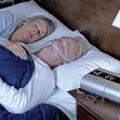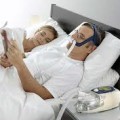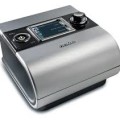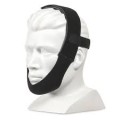While in the past it was possible to purchase a CPAP machine online or from a medical supply store without a prescription, these days a prescription is required. Your physician will also need to prescribe the CPAP settings. Using the wrong CPAP settings can have a big impact on how effective treatment is and it can also cause you to stop using the machine if your physician has prescribed a level that’s too high for you.
Making Adjustments to CPAP Settings
The typical prescribed CPAP settings will range from six to fifteen CM/H20. Some users may require a higher setting. The level of air pressure is designed to keep your airways open, in order to avoid an apnea episode. The pressure is described as less than a sneeze and it’s rarely strong enough to cause the user’s ears to pop.
In order to prescribe the right type of CPAP settings you will need to participate in a sleep study. During a sleep study you will spend the night at a sleep clinic, where you will be hooked up to machines that monitor your breathing. While you’re sleeping, technicians will slowly increase air pressure until they have reached the correct amount that allows your airways to remain open, comfortably.
After the sleep study, make sure you find out the pressure your physician has prescribed. Some patients will find that the prescribed pressure has effectively prevented episodes with sleep apnea, while others may still feel tired and experience headaches, months after treatment. If you are still experiencing these symptoms then your physician may need to adjust the CPAP settings. They will also walk you through your equipment use in order to troubleshoot problems involving the CPAP mask.
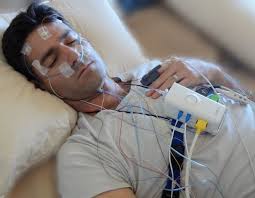
If the pressure has been set too low, it won’t eliminate the apnea episodes. Signs that the pressure is too low includes snoring, feeling deprived of air and insomnia. You may also experience subtle feelings of claustrophobia.
If the settings are too high then your apnea mask may leak or you will have a sore throat and dry mouth or feel bloated the next morning, due to swallowing air.
What do I do is CPAP Therapy is no Longer Working?
If you begin to feel like your CPAP therapy isn’t as effective as it once was, this is fairly common and is a simple fix. If you have noticed changes in your sleep, irritability and fatigue in the morning or complaints from your partner that you have begun to snore, make an appointment with your sleep specialist. They will initially try increasing the level of air pressure, but if you still experience issues with sleep you may need to undergo an additional sleep study. Often making adjustments to the level of air pressure, replacing or purchasing a different style of apnea mask or adding an apnea chin strap are enough to correct any issues with your CPAP therapy. If you have just started using a CPAP machine, your physician may request that you continue using it for another week or two before making any changes. This is because CPAP machines can be initially uncomfortable, but still provide effective treatment once the patient has become adjusted to using it consistently.

